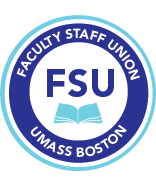Learning from the Quebec Student Strike
John Hess, english
FALL 12
I have visited Montreal at least once a year since 1972. During all that time, my Quebecois and Quebecoise friends have made one consistent complaint about Americans: that they know little to nothing about Canada, and even less about Quebec. That is a great shame, not because it bruises my friends’ egos but because Quebec is a successful, though hardly perfect, social democracy on a northern European model, that has much to teach us.
A recent movement in Quebec deserves a long and deep look. The massive student movement and strike contre la hausse (against the tuition hike) that exploded last semester, is one of the most significant social movements in North America since the 1970s. I think we can learn much from it, despite the differences in our cultures. I want to highlight a few important points.
The strike did not spring from nowhere. It was the result of years of patient organizing and many failures, and of continual efforts to inform and educate not only students but all of Quebec society about the importance of truly affordable public higher education and of the role universities should play in a democratic society. While the tuition hikes that were proposed by the provincial government were by American standards modest—$1,625 over three years—Quebec students thought they were outrageous. Their target was not just the provincial government and the proposed hike, but rather the government and the hike as instances of what they call a neo-liberal consensus to use austerity as a way of redistributing wealth from the mass of the population to the wealthy, of eroding and then devastating social programs, and thus of deforming and perhaps destroying democracy.
The students were able to sustain a very controversial strike for several months, using open and democratic assemblies on each campus to make decisions, culminating in a one day mass walkout of over 300,000 university and community college students on March 22, with a march of over 200,000 in Montreal.
Two other important lessons remain to be highlighted. First, the Quebec student movement did not look to politicians to solve their problems; they made the politicians come to them, and then refused to make deals with them. There was no talk of which candidates the movement should work for, no organizing of phone banks for this or that presumed savior. The Liberal Party that had ruled for some 8 years was defeated in the September election; the new government rescinded the proposed “hausse”; the student movement celebrated its victory and has now turned its efforts toward a long range goal: free public higher education for all Quebecois and Quebecoises who qualify.
The second lesson: There is no substitute to building sustainable democratic progressive mass organizations like Quebec students started decades ago. Despite all of the chatter about new communication technologies, creative organizing and flash mobs, these tools and tactics can’t easily mobilize and sustain a critical mass to achieve such a tangible victory.
Frederick Douglass named his abolitionist newspaper The North Star. Perhaps it is time we, too, once again look north to find inspiration in our struggle to make this a better world for all.
